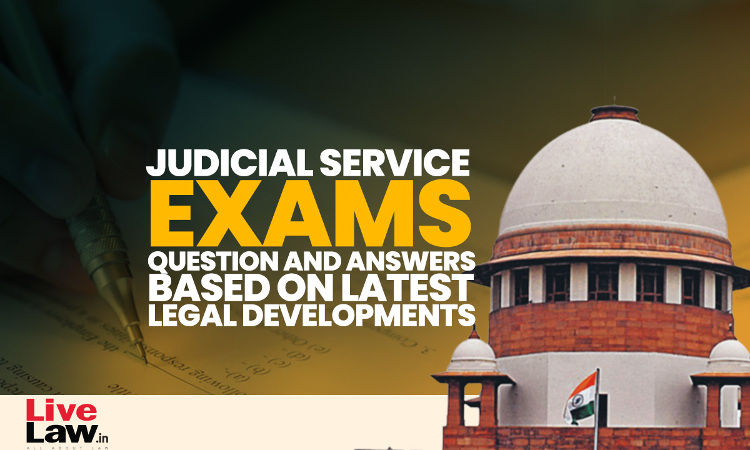Judicial Service Exams: Question (MCQs) Based On Latest Judgements With Explanatory Answers
Paras Ahuja
23 Nov 2022 9:57 AM IST

Next Story
23 Nov 2022 9:57 AM IST
Q1. Which of the following is true with respect to a daughter's right of inheritance? a. A sole daughter will inherit to her intestate father's self-acquired property who dies prior to the enforcement of Hindu Succession Act, 1956 b. A sole daughter will not inherit her intestate father's self-acquired property who dies prior to the enforcement of Hindu Succession...
